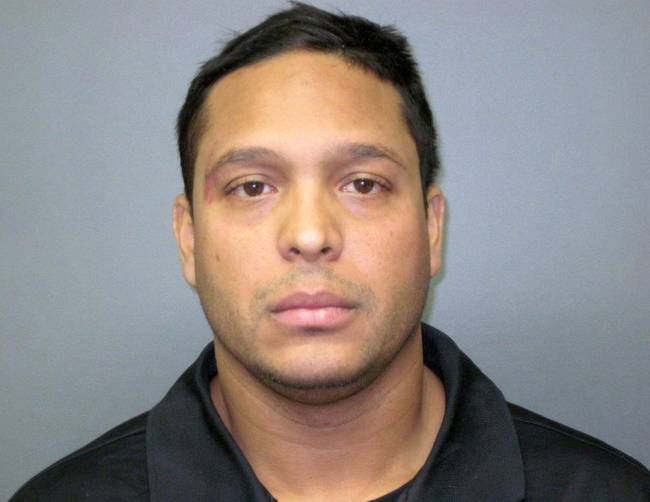
Sen. Warren
Sen. Elizabeth Warren (D-Mass.) has sent a shockwave across the D.C. Beltway and academia after complaining a Brookings Institution scholar co-authored a research report that was paid for by a corporation that used it to lobby Congress to reject consumer protections for retirees.
Warren’s encounter with paid research is nothing new for Stop the Cap! readers. We have been documenting Big Telecom’s “Phoney” research advocating against consumer protections for broadband and for usage caps and usage-based billing since 2009.
In our view, it is nothing short of unethical for a researcher to accept funding for a corporate-backed research study, bury that fact in a footnote, and leave out the dollar amounts involved. But with tens of thousands of dollars ready for the taking per “study,” a cottage industry of academia and “independent” researchers has sprung up to supply customized findings that “coincidentally” mirror that company’s public policy agenda.
Warren followed the money after reviewing a report written by Robert Litan and co-authored by Hal Singer, who often writes about broadband issues for the Progressive Policy Institute, which itself receives significant funding from Big Telecom companies.

Hire your own economist to write you a research report. Economists, Inc.’s “selected client list” is a Who’s Who of America’s top corporations.
Litan’s report advocated against a proposed rule written by the Labor Department that would prohibit retirement plan brokers from receiving financial commissions, bonuses and other quiet incentives from giant investment banks that could potentially influence the advice brokers give consumers. During the housing bust of the Great Recession, similar financial conflicts of interest occurred when realtors and loan officers were accused of steering consumers into loan/mortgage products that paid substantial commissions to both, despite the fact those products may not have been in the best interests of homebuyers.
Litan concluded the new rule would “be too costly” to manage, a claim dismissed as ridiculous by Barbara Roper, director of investor protection for the Consumer Federation of America.
What could have made an economist with ties to the prestigious Brookings Institution reach a conclusion that would, in the words of Roper, leave “millions of working families and retirees without meaningful protections when they turn to financial professionals for retirement investment advice?”
It might be the $85,000 paid by the study’s sponsor — the Capital Group, a leading mutual fund manager with an obvious interest in the outcome.

Brookings promotes “quality, independence, and impact.”
Warren’s staff noticed a tiny footnote on the first page of Litan and Singer’s report acknowledging the study was sponsored by the firm, but did not disclose the amount paid or the conditions under which the study was written.
Warren complained the report was little more than a “highly compensated and editorially compromised work on behalf of an industry player seeking a specific conclusion.” Warren also notified both the Brookings Institution and the Obama Administration that using these types of reports to “independently” bolster a corporation’s lobbying was little more than influence peddling, and implied it threatened Brooking’s reputation.
The practice of writing corporate-sponsored research is well-established, usually dependent on the names and reputations of well-respected think tanks and policy institutes to provide cover for the more blatant practice of direct corporate lobbying. Most corporations avoid drawing attention to their direct financial relationship with study authors. Litan’s money connection was revealed in follow-up written questions from Warren. The answers conflicted with the study authors’ original claims they were “solely responsible” for the study’s conclusions, finally revealing Capital Group had paid $85,000 for the study, and Litan’s share was $38,800.

Recognize that logo? Your retirement fund may already be handled by a Capital Group subsidiary like American Funds.
Tom Joyce, a spokesman for the Capital Group, said his company was following standard practice. “It is typical for organizations to sponsor academic studies,” Joyce said, noting that in this case, “no preconditions or predetermined conclusions were imposed.”
Few D.C. insiders believe Joyce, noting they have never seen a corporate-sponsored report that concluded anything markedly different from the corporate sponsors’ own positions.
In the end, Litan resigned his “non-resident scholar” position at the Brookings Institution, not because of his association with corporate-sponsored research, but rather his violation of a new think-tank rule prohibiting researchers from citing their affiliation with Brookings when testifying before Congress.
After that, the D.C. establishment and a threatened coterie of fellow pay-for-research writers went on the warpath, realizing a lucrative revenue stream was at risk if the public knew the independence of corporate-funded research is often suspect.
“This is McCarthyism of the left,” Hal Singer, a senior fellow at the Progressive Policy Institute and co-author of the research Warren criticized told Politico. “What Warren is doing is suppressing scholars [who] speak independently through her threats.”
An editorial in the Wall Street Journal accused Warren of launching an inquisition against ideas and used the names of several former officials in the Clinton Administration to defend the bipartisan practice of corporate writing on spec.
The National Review (seeing a trend yet?) also blistered Warren for having a double standard in a piece Bloomberg News dismissed as “interesting though a bit breathless.” The fact pro-regulation lobbying group Better Markets often agrees with Sen. Warren’s political views was enough for the conservative magazine to indict her for essentially doing the same thing Litan did. Only Bloomberg concluded Warren was more of a bystander than a participant.
[The National Review piece] accuses Better Markets of “failing to adequately disclose its relationship” with its hedge-fund-manager founder Michael Masters, even though that relationship seems to be fully disclosed, and it insinuates that Masters was shorting Prudential and MetLife while Better Markets was arguing to have them regulated as “systemically important,” even though the only evidence for that is that Masters [had] long call options on Pru and Met.
Warren has made a point of publicly exposing the cozy relationships corporations have with lobbyists, paid consultants, and academia in her one-woman war to protect consumer interests and punish big banks and corporations for anti-consumer behavior. Her practice of tearing the lid off D.C.’s revolving door of lobbying and public service has made Democrats and Republicans nervous, and more than few are looking for revenge.
As far as we’re concerned, Warren’s isn’t the issue. The problem rests with those that willingly choose to risk their credibility for cash, writing reports with glaring conflicts of interest.



 Subscribe
Subscribe




 The huge class action case has been in the works for years and alleges that defendants and co-conspirators conspired to raise and fix prices for CRT monitors (the ones you probably used before you bought your first flat panel LCD monitor). The alleged scam ran for more than a decade and several manufacturers have agreed to settle to make the case go away without admitting guilt.
The huge class action case has been in the works for years and alleges that defendants and co-conspirators conspired to raise and fix prices for CRT monitors (the ones you probably used before you bought your first flat panel LCD monitor). The alleged scam ran for more than a decade and several manufacturers have agreed to settle to make the case go away without admitting guilt.
 Scammers are once again spoofing Verizon Wireless’ 1-800-922-0204 customer service number shown on a customer’s Caller ID in calls offering “refunds” ranging from $30-60 in return for personal information needed to “process a refund check or service credit.”
Scammers are once again spoofing Verizon Wireless’ 1-800-922-0204 customer service number shown on a customer’s Caller ID in calls offering “refunds” ranging from $30-60 in return for personal information needed to “process a refund check or service credit.” Complicating matters are Verizon’s own marketing calls to customers originating from the same 800 number, which are legitimate. In an effort to combat the scammers, customers can call Verizon Wireless back at 1-800-922-0204 and the automated call attendant will confirm any recent legitimate customer service calls (often for an “account review” or to tell you about a past due balance) made to your number recently.
Complicating matters are Verizon’s own marketing calls to customers originating from the same 800 number, which are legitimate. In an effort to combat the scammers, customers can call Verizon Wireless back at 1-800-922-0204 and the automated call attendant will confirm any recent legitimate customer service calls (often for an “account review” or to tell you about a past due balance) made to your number recently.